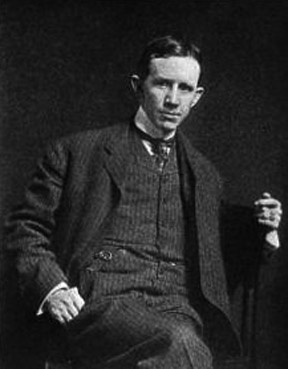John Tinney McCutcheon (May 6, 1870 – June 10, 1949) was an American newspaper embassy cartoonist, war correspondent, combat artist, and author who won a Pulitzer Prize for his 1931 editorial cartoon, “A Wise Economist Asks a Question,” and became known even past his death as the “Dean of American Cartoonists.” The Purdue University graduate moved to Chicago, Illinois, in 1890 to put on an act as an artiste and occasional writer for the Chicago Morning News (later named the News Record, the Chicago Record, and the Record-Herald). His first front-page excitement appeared in 1895 and his first published political cartoon was published during the U. S. presidential stir up of 1896. McCutcheon introduced human immersion themes to newspaper cartoons in 1902 and allied the staff of the Chicago Tribune in 1903, remaining there until his retirement in 1946. McCutcheon’s cartoons appeared upon the front page of the Tribune for forty years.
Among his best-known works are “Injun Summer,” considered one of the best in his “boy” series of cartoons; his series of “Bird Center” cartoons, which depicted daily moving picture in a fictional little town; and “The Colors,” one of his most famous wartime cartoons. His autobiography, Drawn from Memory (1950), was published posthumously. As a skirmish correspondent and court case artist, McCutcheon covered the Spanish–American War, the Battle of Manila Bay and the Philippine–American War, and the Second Boer War in South Africa. He along with reported from Europe during World War I, beginning next his eyewitness account of the German onslaught of Belgium. In addition, McCutcheon, made several trips to Asia, Mexico, Africa, and the Bahamas, where his owned a private island called Salt Cay.
What do you think of the works of John T. McCutcheon?
Use the form below to say your opinion about John T. McCutcheon. All opinions are welcome!
